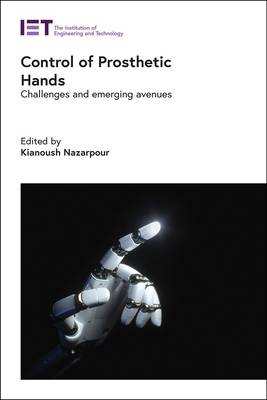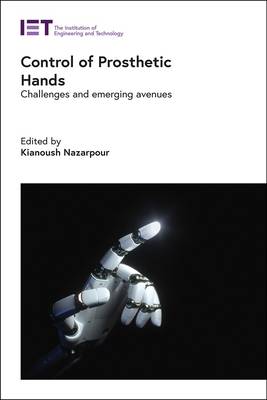
- Retrait gratuit dans votre magasin Club
- 7.000.000 titres dans notre catalogue
- Payer en toute sécurité
- Toujours un magasin près de chez vous
- Retrait gratuit dans votre magasin Club
- 7.000.0000 titres dans notre catalogue
- Payer en toute sécurité
- Toujours un magasin près de chez vous
Control of Prosthetic Hands
Challenges and Emerging Avenues
Description
This edited book brings together research from laboratories across the world, in order to offer a global perspective on advances in prosthetic hand control. State-of-the-art control of prosthetics in the laboratory and clinical spaces are presented and the challenges discussed, and the effect of user training on control of prosthetics to evaluate the translational efficacy and value for the end-user is highlighted.
The book begins with a chapter introducing the fundamental principles, engineering challenges and control solutions for prosthetic hands. Further chapters address methods to design bespoke sockets, magnetomyography, implantable technologies for closed-loop control of prostheses, direct neural control of prostheses via nerve implants as well as user-prosthesis co-adaptation, and two chapters on prosthetics for children. The book concludes with a chapter by Dr Nazarpour on the future of myoelectric prosthetics control, with particular focus on the successful translation of research advances into real clinical gains.
The book is essential reading for anyone involved in research or undertaking advanced courses in prosthetic design and control. It provides an in-depth exploration of this rewarding topic, by exploring technologies with the potential to improve the quality of life of upper-limb prosthetic users.
Spécifications
Parties prenantes
- Editeur:
Contenu
- Nombre de pages :
- 232
- Langue:
- Anglais
- Collection :
Caractéristiques
- EAN:
- 9781785619847
- Date de parution :
- 31-12-20
- Format:
- Livre relié
- Format numérique:
- Genaaid
- Dimensions :
- 160 mm x 239 mm
- Poids :
- 2267 g

Les avis
Nous publions uniquement les avis qui respectent les conditions requises. Consultez nos conditions pour les avis.





